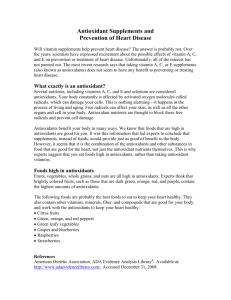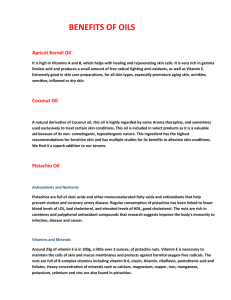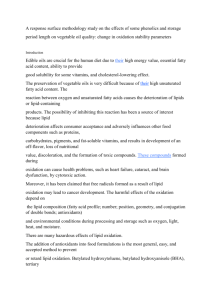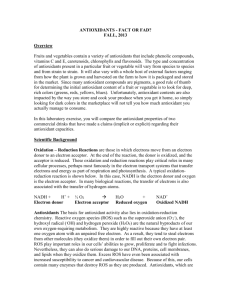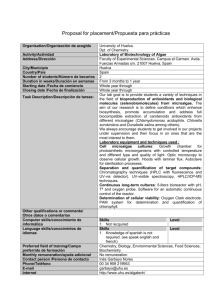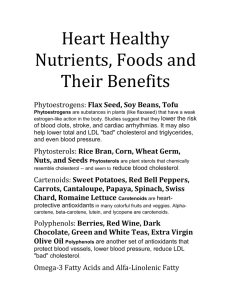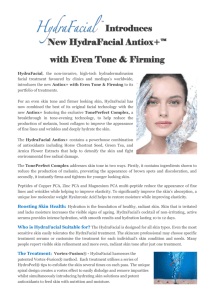Antioxidants - Alpine Animal Hospital
advertisement
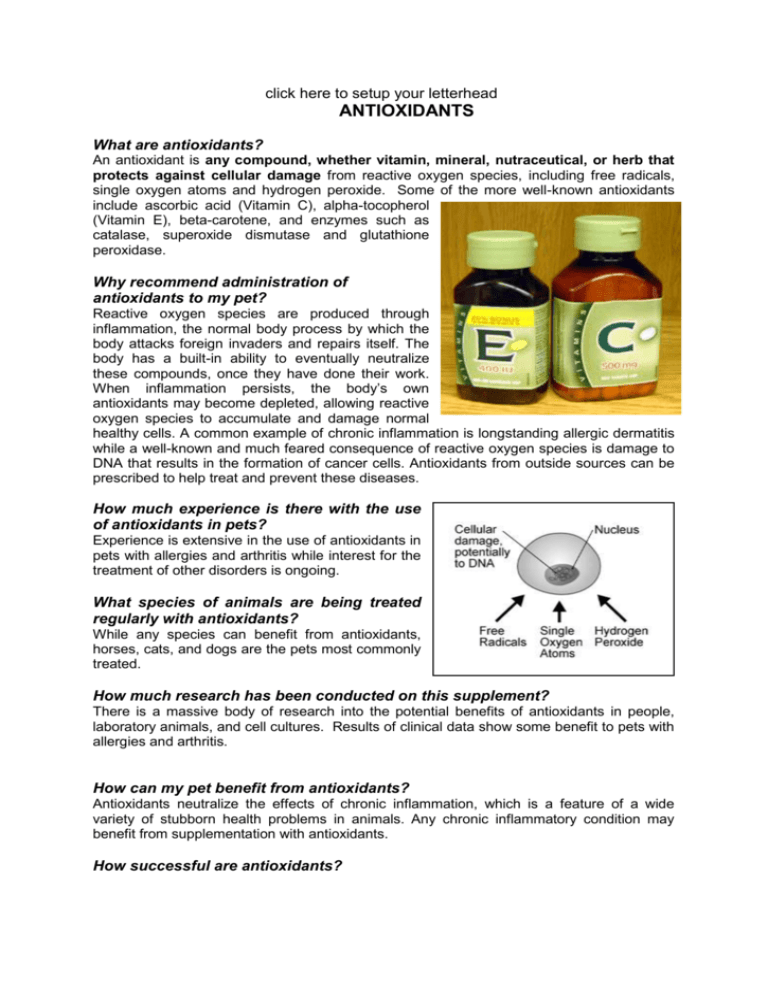
click here to setup your letterhead ANTIOXIDANTS What are antioxidants? An antioxidant is any compound, whether vitamin, mineral, nutraceutical, or herb that protects against cellular damage from reactive oxygen species, including free radicals, single oxygen atoms and hydrogen peroxide. Some of the more well-known antioxidants include ascorbic acid (Vitamin C), alpha-tocopherol (Vitamin E), beta-carotene, and enzymes such as catalase, superoxide dismutase and glutathione peroxidase. Why recommend administration of antioxidants to my pet? Reactive oxygen species are produced through inflammation, the normal body process by which the body attacks foreign invaders and repairs itself. The body has a built-in ability to eventually neutralize these compounds, once they have done their work. When inflammation persists, the body’s own antioxidants may become depleted, allowing reactive oxygen species to accumulate and damage normal healthy cells. A common example of chronic inflammation is longstanding allergic dermatitis while a well-known and much feared consequence of reactive oxygen species is damage to DNA that results in the formation of cancer cells. Antioxidants from outside sources can be prescribed to help treat and prevent these diseases. How much experience is there with the use of antioxidants in pets? Experience is extensive in the use of antioxidants in pets with allergies and arthritis while interest for the treatment of other disorders is ongoing. What species of animals are being treated regularly with antioxidants? While any species can benefit from antioxidants, horses, cats, and dogs are the pets most commonly treated. How much research has been conducted on this supplement? There is a massive body of research into the potential benefits of antioxidants in people, laboratory animals, and cell cultures. Results of clinical data show some benefit to pets with allergies and arthritis. How can my pet benefit from antioxidants? Antioxidants neutralize the effects of chronic inflammation, which is a feature of a wide variety of stubborn health problems in animals. Any chronic inflammatory condition may benefit from supplementation with antioxidants. How successful are antioxidants? Antioxidants are very successful when used appropriately. They should not be looked upon as curative in themselves, but can form an extremely valuable part of integrated therapy for a wide variety of conditions, ranging from allergic dermatitis to cancer prevention. How safe are antioxidants? Antioxidants are generally safe. To prevent toxicity, balanced supplements rather than individual vitamins and minerals should be used. Some antioxidants function synergistically to enhance each other’s effects, and require appropriate levels of each component for best results. Some antioxidants may interfere with conventional cancer therapies while others can actually enhance chemotherapy and radiation therapy outcomes. Veterinary supervision is recommended when using antioxidants in the treatment of cancer. Where do I obtain antioxidants and do I need a prescription? Your veterinarian may have preferred supplements that he or she will recommend. Pet owners are cautioned against buying supplements over-the-counter, as supplements are not highly regulated and some supplements may not measure up to their labels. A prescription is not needed for antioxidant supplements. This client information sheet is based on material written by Steve Marsden, DVM ND MSOM LAc DiplCH AHG, Shawn Messonnier, DVM and Cheryl Yuill, DVM, MSc, CVH. © Copyright 2004 Lifelearn Inc. Used with permission under license. February 15, 2016.

